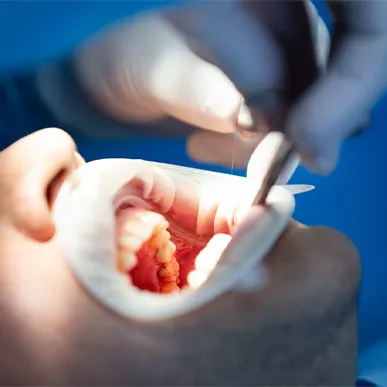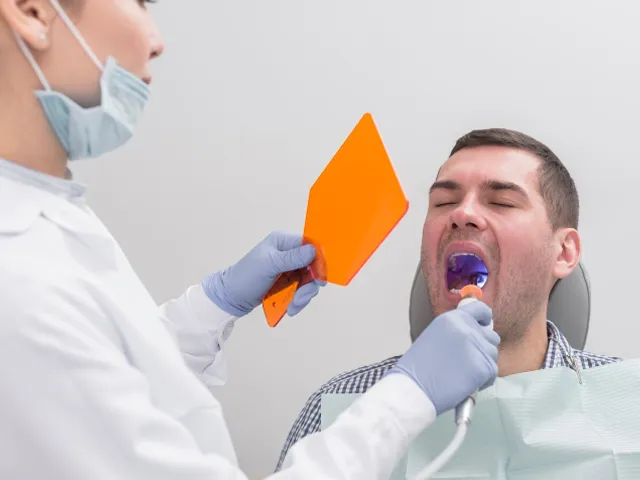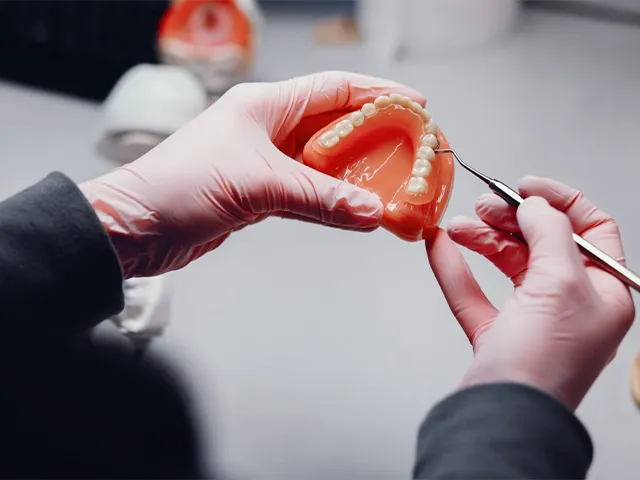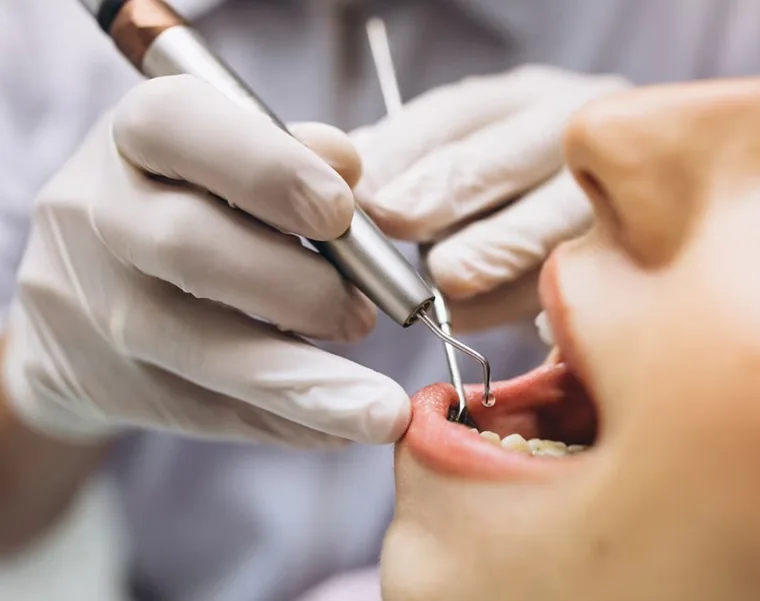Gum inflammation is the condition where the gums become inflamed and swollen due to bacterial infection. This condition usually arises from inadequate oral hygiene. It is characterized by redness, swelling of the gums, and easy bleeding.
Gum inflammation is a common oral health issue encountered by both adults and children. It typically emerges from poor oral hygiene and, if left untreated, can lead to serious gum diseases. Managing and treating this inflammation can significantly improve life quality and help prevent more severe gum diseases.
What Helps Gum Inflammation?
Gingivitis, also called gum inflammation, results from the accumulation of bacterial plaque on the gums. Symptoms of gingivits include redness, swelling, sensitivity in the gums, and bleeding during brushing or flossing. Bad breath and gum recession are also among the symptoms of gum inflammation. Those experiencing swelling in the gums often seek answers to “Why does gum swelling occur?” The underlying cause of issues like swelling or gum enlargement is this inflammation, which begins when plaque and tartar accumulate between the teeth and gums. If plaque is not regularly cleaned, it turns into tartar and causes inflammation in the gums.
Persistent gum inflammation is usually a result of poor oral hygiene. However, in some cases, gingivitis can be an indicator of more serious health problems. For example, chronic diseases such as diabetes and heart disease can affect gum health, making inflammation more likely. Therefore, individuals experiencing this issue should consult a dentist to determine if there are any underlying health problems.

The treatment of gum inflammation in children is fundamentally similar to that in adults. Regular brushing, flossing, and dental check-ups can help maintain children’s gum health. Toothpastes and mouthwashes specially formulated for children, containing fluoride, can be used to protect their gum health. Parents should ensure their children pay attention to oral hygiene and encourage regular dental visits.

Treatment of this problem often involves professional procedures like tartar cleaning and smoothing of the root surfaces. These procedures aim to remove plaque and tartar from the tooth surfaces to facilitate better healing of the gums. In advanced cases, antibiotic treatments or surgical interventions may be required.
How Does Gum Inflammation Resolve?
With proper measures and early treatment, gingivits is a manageable condition. Regular oral hygiene, both home and medical treatments, are key to maintaining gum health and preventing progressive gum diseases. Therefore, if there are any concerns about gum health, consulting a dentist is important.
The most crucial step in treating gum disease is maintaining effective oral hygiene. Regular and proper brushing and flossing can help prevent plaque formation and reduce inflammation. Antibacterial mouthwashes can also support healing by reducing the bacteria amount.
What Can Be Done at Home for Gum Inflammation?
For those wondering “What helps gum swelling?” there are several measures that can be taken at home to manage this inflammation. Firstly, regular and proper brushing and flossing are crucial. This reduces plaque buildup and maintains gum health. Additionally, using an antibacterial mouthwash can help alleviate the problem. Making a salt water gargle can also be tried at home to reduce inflammation and pain. Salt has antiseptic properties and can help reduce microorganisms in the mouth.
When inflammation reaches a severe state or does not respond to home treatments, professional medical intervention may be necessary. A dentist can perform professional cleaning to remove plaque and tartar. This procedure, known as tartar cleaning or deep cleaning, aids in the healing of the gums. In advanced stages, antibiotic treatment or gum surgery may be required.
In conclusion, gingivitis is a common issue, yet with the right measures and early treatment, it is manageable. Regular oral hygiene, simple measures at home, and professional medical intervention when necessary, are key to maintaining gum health and preventing serious complications.
For detailed information about tooth and gum diseases, you can reach out to Libredent.












